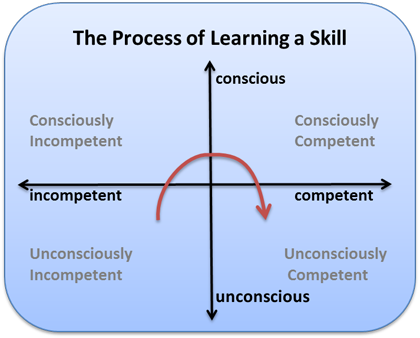Apologetics is normally understood as defensive, like a castle protecting our Christian faith from different sorts of attacks. No. Apologetics is actively loving and persuading others of the Gospel’s truthfulness.
 Bodiam Castle, in the UK. / Phil Clements (Flickr)
Bodiam Castle, in the UK. / Phil Clements (Flickr)
Apologetics is normally understood as defensive, like a castle protecting our Christian faith from different sorts of attacks. No. Apologetics is actively loving and persuading others of the Gospel’s truthfulness.
Alvin Plantinga, one of the leading Christian philosophers in the world, writes that apologetics is “the attempt to defend Christianity (or more broadly, theism) against the various sorts of attacks brought against it.”1 Likewise, Evangelical theologian Norman Geisler argues, “Apologetics is the discipline that deals with a rational defense of Christian faith.”2 These definitions are examples of the current popular understanding of apologetics as the defense of Christianity against various accusations from nonbelievers.
At one level this approach is true and needed. Paul was eager to defend the Gospel and even called some false teachers “evildoers,” “mutilators of the flesh” and “wolves” (Phil. 3:2; Acts 20:29).
And yet, if we think of apologetics primarily as defensive, we lose the powerful outward vision of the Gospel as the “word of truth” and “grace of God in truth” that the early Christians came to understand and eagerly explain to everyone (2 Tim. 2:15,Col. 1:6). Because the Bible portrays evangelism as outward looking, confident and joyful, it is more accurate to understand Apologetics as the Science and Art of Christian Persuasion. Each of the elements of this brief definition of apologetics deserves further comment.
1) Apologetics is the Science and Art of Christian Persuasion.
Before we can talk about apologetics as a science or an art of persuasion, we need to explain why it is Christian. The great Christian writer Augustine of Hippo was a professor of rhetoric and a master of the spoken word. He argued that rhetoric, the discipline of persuasive verbal communication, could be used with the wrong motives and toward wrong ends. “The rules of eloquence,” he wrote, “can be used in connection with true principles as well as with false, they are not themselves culpable, but the perversity of ill-using them is culpable.”3 Augustine argued that Christians need to be guided by the Bible’s ethical standards to make sure that persuasion has the right motives and objectives.
It is vitally important to understand and emphasize the spiritual and ethical context of biblical apologetics. Persuasion without ethical guidance can easily become manipulation or prideful self-righteousness. Currently, the verse Evangelicals most often quote to describe apologetics is I Peter 3:15: “Always be prepared to give an (apologian) answer to everyone who asks you to give the reason for the hope that you have.”
But what is the context of this passage? I Peter 3:8-17 is an ethical vision for how God’s people are to live life:
“Finally, all of you, live in harmony with one another; be sympathetic, love as brothers, be compassionate and humble. Do not repay evil with evil or insult with insult, but with blessing, because to this you were called so that you may inherit a blessing. For,
‘Whoever would love life and see good days must keep his tongue from evil and his lips from deceitful speech. He must turn from evil and do good; he must seek peace and pursue it. For the eyes of the Lord are on the righteous and his ears are attentive to their prayer, but the face of the Lord is against those who do evil.’
Who is going to harm you if you are eager to do good? But even if you should suffer for what is right, you are blessed. ‘Do not fear what they fear; do not be frightened.’ But in your hearts set apart Christ as Lord. Always be prepared to give an answer to everyone who asks you to give the reason for the hope that you have. But do this with gentleness and respect, keeping a clear conscience, so that those who speak maliciously against your good behavior in Christ may be ashamed of their slander. It is better, if it is God’s will, to suffer for doing good than for doing evil.”
Without the way of life that this passage teaches - a life of harmony, sympathy, love, compassion and humility – we can’t make a defense of the Gospel as Peter calls us to. As disciples of Jesus we are called to an ethical and relational way of life and out of this way of life to persuasively communicate the Gospel. It is not Christian apologetics without this ethical way of life.
When I was in seminary, I was taught by a gifted apologist. He showed our class a video of a debate in which he had engaged with an influential atheist. He very handily tore this atheist’s arguments apart intellectually. But I was troubled by his attitude. This gifted Christian apologist seemed proud and lacked what this passage depicts. He lacked a Christ-like attitude. I raised my hand and basically said that I didn’t see him reflecting a Christ-like character. He responded that he had been taught by his theology teacher years earlier that debating wasn’t to win a sinner but to burn a heretic. I responded that Francis Schaeffer once said that if he could not show the character of Christ in a debate, he had no right to present the message of Christ.
Apologetics is explicitly and fundamentally Christian. Apologetics is a form of Christian love. We are called to love nonbelievers, and a part of how we are to love them is to share the life-changing message of the Gospel with them and explain why this message is true.
Part of this love is caring about those who have not heard or understood the Gospel, or who disagree with the Gospel. We need to love them enough to listen to them, ask them questions, answer their questions, challenge them to be genuine seekers of the truth, urge them to examine the claims of Christ, and sometimes challenge them to quit rationalizing their behavior. Apologetics is a form of Christian love and Christian leadership that includes a biblical way of life.
2) Apologetics is the Science and Art of Christian Persuasion
The word “science” in its classical sense means learning, expertise, or body of knowledge. To be a Christian apologist, one needs to be eager to learn in order to be more effective in communicating the Gospel.
We see a reservoir of learning and understanding in the greatest of Jesus’ evangelists, the Apostle Paul. God selected the brilliant and zealous Saul, educated by Gamaliel, to be a “chosen instrument of mine to carry my name before the Gentiles and kings and the children of Israel.” (Acts 9:15). Paul explains the Gospel to Jews by referencing the Old Testament prophecies to show that Jesus was the Christ; in contrast, Paul explains the Gospel to the Greeks by using their cultural categories and literature.
We see an amazing picture of Paul’s persuasive communication of the Gospel when he presents the Gospel to Roman leaders in Caesarea. Roman Procurator Festus interrupts Paul’s speech to say, “your great learning has driven you mad.” Even Paul’s jailor recognized that Paul was brilliant and had a depth and breadth of learning that was remarkable. Paul responded to Festus that what he was saying was “true and reasonable” and explained that he was presenting his message boldly because King Agrippa was in the audience “and none of these things have escaped his notice, for this has not been done in a corner.” Agrippa recognized that Paul was seeking to convince him that the Gospel was actually true and asks Paul: “In a short time would you persuade me to be a Christian?” Paul responds, “Whether short or long, I would to God that not only you but also all who hear me this day might become such as I am – except for these chains.” Paul is seeking to persuasively communicate the Gospel and uses the wide learning he has to do this (Acts 26:24-29).
In our last article, we discussed the life and impact of William Wilberforce. During his time at Cambridge before his conversion, Wilberforce was anything but a disciplined student. However, after the “great change” of his conversion, Wilberforce spent a portion of each year studying in order to more faithfully and effectively be God’s politician. He read history, literature, economics and philosophy to this end.4 When the great controversies of the slave trade emerged, Wilberforce would surround himself with the required reading materials for weeks and months at a time. He was known to speak at Parliament for over three hours drawing on his intensive study.
It is this commitment to learn that often helps a believer answer a nonbeliever’s questions. When I think back on my early growth as a believer on a secular university campus, it was often rooted in a spiritual dynamic of:
I have found this dynamic to be healthy both for myself and for those I have been able to help. But many are threatened by this process. There is a great danger of Evangelicals shaming other believers to have “faith” without encouraging them to grow in their faith by helping them to answer their questions.
If we don’t know what we believe and why we believe it, our belief becomes brittle and fragile. In such a closed and intellectually-frightened environment many Christians are afraid to even ask their questions. We need to listen to the wisdom in L’Abri Fellowship’s guiding principle “honest questions deserve honest answers.”5 We need to be eager to help people work through their questions. Honest questions can be healthy as long as there are wise mentors to help someone along the path of truth. To doubt means to be in two minds about something, to feel the weight of both a positive and negative argument concerning a particular proposition. We need to help believers untangle their questions and work through them. Doubt can be cancerous, but it need not be so. Doubt can be treated and cured, and faith can be strengthened.
At a crucial time after his conversion experience, Wilberforce sought the counsel of John Newton as to whether or not he should withdraw from the political world because of his faith. Newton acted as an apologetic mentor by listening to Wilberforce’s dilemma, answering his questions about the impact of his faith on his life, and encouraging him to pursue a calling in politics as a faithful believer.
Sadly, many have not had wise apologetic mentors to help them. They have encountered leaders who have condemned them for merely verbalizing their honest questions. George MacDonald wisely wrote, “It is often incapacity for defending the faith they love which turns men into persecutors.”6 I have met many who have been swept off their feet intellectually when they have not had a friend or mentor to help them think through the challenge before them. These individuals become bitter and angry. Satan wins by blinding their eyes to the truth. To help others we need to understand both the word and the world. Sharing an insight or helping someone understand the presupposition of their question is a significant part of how we love them. We need to know where someone is, what intellectual questions they are wrestling with and how to help them. To do all this takes great learning, insight, wisdom and love.
We shouldn’t feel that there is one cookie-cutter type of apologist or only one ministry of apologetics. There are many different kinds of apologists, and each needs a different type of knowledge.
At different levels, all apologists will profit from a deeper understanding of the history of theology, biblical and systematic theology, and philosophy – some of the core academic disciplines of apologetics. To do effective apologetics will also require some knowledge of the culture one is facing and of many other areas, including both the sciences and the humanities. All of this content of learning is applied to showing and explaining why Christianity is true and reasonable.
Yet please realize that merely repeating old apologetic arguments is not what I am suggesting. Some apologists seem to argue that apologetics is merely a summary of various historical and philosophical arguments. Not true.
Virtually any aspect of human life can be turned into an argument for why Christianity is true and reasonable. We can use an event, situation or reality and from it show the explanatory power of the Christian worldview. Just take one example from our recent world history – September 11th.
 “Running from the Collapsed Tower -9/11” (Sept. 11, 2001). / Brian Boyd (Flickr)
“Running from the Collapsed Tower -9/11” (Sept. 11, 2001). / Brian Boyd (Flickr)Why did the terrorists attack? Why did firefighters run up dozens of flights of stairs to their deaths in their efforts to save others? Why do we grieve the loss of innocent human life? Why is there this kind of evil? Why do human beings hate others so much? Why do we feel such grief? Why do we need to feel hope? Why do strong leaders so appeal to us during these times?
Each of these questions can be answered by a Christian apologist as one more piece of evidence of the value and wonder of human beings, the twisted sinfulness of human beings, the power of sacrifice, the brokenness of the fallen world we live in, and the fact that we all long for hope and meaning. The relevance and truthfulness of the Gospel is only an inch from any important topic. In other words, we can best understand the reality of the world we live in from the lens of the Christian worldview. The Christian worldview has enormous explanatory power. Christianity fits with the world, and is true and reasonable. But it takes discipline, study and effort to articulate the Gospel in a way that addresses the questions of one’s audience.
Think of the Bereans to whom Paul explained the Gospel: “Now the Berean Jews were of more noble character than those in Thessalonica, for they received the message with great eagerness and examined the Scriptures every day to see if what Paul said was true” (Acts 17:11). They wrestled with what Paul had to say and studied the Bible to see if Paul was right. They had to learn – before they came to faith – and Paul had to know enough to teach them.
3) Apologetics is the Science and Art of Christian Persuasion
Apologetics is not merely a body of intellectual content and knowledge. Apologetics is Christian because it requires that apologists must first and foremost be Christ-like in their character. The goal of apologetics is not to burn a heretic but to win a sinner. But to be effective, an apologist must be wise and knowledgeable with an understanding of the questions, worldview and subject areas of those who are asking the questions. Having a good heart is not always adequate. An apologist needs to understand both the world and the word.
But apologetics is more than just this. Apologist Bill Craig has compared the skill of a Christian apologist who debates atheists to the skill needed in becoming an Olympic figure skater. Does someone yank on skates and immediately glide into gold medal history? No, it takes years of patiently learning skills, watching the best experts, listening to coaches and practicing natural talents to become a highly skilled Olympic skater – or a highly skilled Christian debater.
 “Figure Skating Queen YUNA KIM.” (Feb. 20, 2014). / Queen YUNA (Flickr).
“Figure Skating Queen YUNA KIM.” (Feb. 20, 2014). / Queen YUNA (Flickr). What are the skills needed to communicate effectively with a non-believer?
When I was growing up, my high school had dances where all the students went after basketball games. They would have been more accurately called “leans”, because all of the young men would just lean against the wall. We didn’t want to make fools of ourselves by trying, so we didn’t dance at all. It was years until I finally learned how to dance. It took effort. It took practice. Believe me, it took much coaching.
I went through four stages of learning the skill and art of dancing. These are the four quadrants of learning any skill, including the skills of apologetics.
1. Unconsciously Incompetent – Before I thought about it or attempted learning to dance, I was unconsciously incompetent. I didn’t know how much I didn’t know.
2. Consciously Incompetent – When I first attempted to dance, I became conscious of how incompetent I was.
3. Consciously Competent – When I began to practice and work at the skills of dancing, I eventually became consciously competent.
4. Unconsciously Competent – Only after much practice and coaching did I eventually become unconsciously competent.
 The process of learning a skill.
The process of learning a skill.Ultimately, if a gifted apologist prepares faithfully and receives proper training, they can exercise a skill similar to that of an Olympic figure skater. If done well, it appears effortless, but it takes natural ability and years of discipline, effort, acquired skill, and wise coaching for an apologist to reach his or her potential.
Now I need to be clear – not every apologist should be a debater. But shouldn’t some of us learn the skills of debating or of public speaking?
Yet, we need to think bigger than this. We need to recognize that Wilberforce, without ever making an historical argument, was an incredible apologist for the faith. He reflected the Lord’s character and concerns into his culture in the political realm. He developed and honed his skills in political apologetics. We need to have Christian apologists in politics, media, film, journalism, law, medicine and all areas of academia. We need apologetic pastors who teach winsomely and persuasively to both believers and nonbelievers alike. Each of these areas of calling has unique apologetic skills and abilities that believers need to patiently acquire. The church needs men and women who will give themselves to the calling the Lord has placed on them and be persuasive witnesses for him and his truth. We have allowed apologetics to become too narrow and provincial.
 “Michael Caine holding Oscar.” (July 15, 2009). / cooperscooperday (Flickr)
“Michael Caine holding Oscar.” (July 15, 2009). / cooperscooperday (Flickr)Think of our adversaries. Some of the best contemporary movies are persuasive arguments for moral and political positions that we as historic Christians would find objectionable. The movie Philadelphia, in which Tom Hanks won a best actor Oscar, advances a homosexual agenda. The movie Cider House Rules, in which Michael Caine won an Oscar, is a carefully crafted argument for a pro-abortion political position. As believers, we have not approached the movies with the same vision and creativity as our secular peers. One does not merely provide entertainment with motion pictures. One also shapes culture and basic convictions when an audience is sitting in a darkened room for two hours in front of a movie screen. One engages in persuasion.
Movies are the cultural language of globalization. The church desperately needs individuals who have a passion for presenting and explaining God’s truth to acquire the skills and training to create such movies. Rhetoric and persuasion are all around us. We need to recognize this and be willing and eager to present the truth of the Gospel in these various settings and forms.
We also need both academic and lay apologists. Few lay apologists will ever read through Alvin Plantinga’s trilogy on Christian epistemology. Nor should they. There must not be one cookie-cutter approach to stamp out apologists. Some have a calling to academic philosophy or theology, and we need to praise God for this. We need to recapture the universities and the highest levels of intellectual thought for Christ. But we also need to find the resources and tools to help apologists with different gifts and abilities learn how to communicate within their specific contexts. And a large part of the process of growing as an apologist must involve honing one’s apologetic skills. We need to be aware of this and learn to help others to grow in these areas.
4) Apologetics is the Science and Art of Christian Persuasion
Apologetics and persuasion have a bad reputation in many Evangelical circles. There are many reasons for this. When I was asked at an American Evangelical graduate school to teach their course in apologetics, one professor who interviewed me confessed that he had no idea how to teach apologetics. He was spooked by the specter of postmodernism.
But long before postmodernism became popular, many Evangelicals have taught that any attempt to persuade a nonbeliever is fruitless and unbiblical. They believe that such an Evangelical has already compromised the Gospel by seeking to do God’s job. Such apologists against apologetics are curiously often very persuasive to the typical Evangelical. They are right when they assert that no one can be argued into heaven. But by their understanding they eliminate half of how the early church communicated the word of truth. The early Christians proclaimed the Gospel and persuaded their contemporaries that it was true and reasonable.
Understood biblically – and at the best times of Christian history – Christians have actively sought to persuade nonbelievers that Christianity is true, that Jesus really is who he claimed to be, and that God has broken into history to reveal himself. Yes, an essential part of apologetics is to help Christians defend Christianity against, as Plantinga argues, “the various sorts of attacks brought against it.” One of the functions of biblical apologetics is to answer the questions of the faithful and to serve as intellectual protection from the assaults of the world. But the primary focus of apologetics must be external, to win the world to Jesus.
As Christian leaders we are called to persuade others like Paul did. Acts 17:2-4 records,
As his custom was, Paul went into the synagogue and on three days he reasoned with them from the Scriptures, explaining and proving that the Christ had to suffer and rise from the dead. “This Jesus I am proclaiming to you is the Christ,” he said. Some of the Jews were persuaded and joined Paul and Silas, as did a large number of God-fearing Greeks and not a few prominent women.
Later in Acts 17, Paul addressed the Epicurean and Stoic philosophers and explained the Gospel persuasively using their language, literature and cultural symbols. Apologetics is the process of a Christian seeking to persuasively explain, show and argue why Christianity is true.
This is the basis for apologetics: Christians loving others and persuasively sharing the Gospel with them using both their knowledge and skills while being dependent of God.
How do we do this? Come back next week to learn about some of the typical roadblocks to faith for non-Christians and how we can help dismantle them.
1 Kelly James Clark, Philosophers Who Believe: The Spiritual Journeys of 11 Leading Thinkers (Downers Grove, Il.: Intervarsity Press, 1993), 69.
2 Norman Geisler, ed., Baker Encyclopedia of Christian Apologetics (Grand Rapids: Baker Books, 1999), 37.
3 Augustine, On Christian Doctrine Trans. by D. W. Robertson. (New York: The Free Press, 1958), 73.
4 John Pollock, Wilberforce (England: Lion Publishing, 1986), 43.
5 L’Abri Fellowship. http://www.labri.org/history.html
6 George MacDonald, Anthology (New York: Macmillan, 1941), 138.
7 Brian Boyd. “Running from the Collapsed Tower -9/11” (Sept. 11, 2001). www.flickr.com
8 { Queen YUNA }. “Figure Skating Queen YUNA KIM.” (Feb. 20, 2014). www.flickr.com
9 cooperscooperday. “Michael Caine holding Oscar.” (July 15, 2009). www.flickr.com
Greg Pritchard earned his MA from Trinity School of Divinity before continuing on to finish his PhD at Northwestern University. The intersection of theology, history, philosophy and sociology is Greg’s primary focus both in teaching and writing. He has taught graduate-level courses on apologetics, theology, history, leadership, the New Testament, ethics, and Christian Thought at American, European, and Asian institutions of higher learning. His book, Willow Creek Seeker Services, has been published in four languages. In addition, Greg has worked as the COO at a Chicago investment firm. Currently, he serves as the President of the Forum of Christian Leaders and as the Director of the European Leadership Forum.
The Forum of Christian Leaders (FOCL) is the sponsor of the European Leadership Forum (ELF), which seeks to unite, mentor, and resource European evangelical leaders to renew the biblical church and re-evangelise Europe. This happens first at the ELF's annual meeting that occurs each May in Poland. In addition to the ELF, FOCL is host to an online media library and learning community for evangelical Christians. Learn more at foclonline.org and euroleadership.org; or join us on Twitter @FOCLonline and Facebook Forum of Christian Leaders.

Las opiniones vertidas por nuestros colaboradores se realizan a nivel personal, pudiendo coincidir o no con la postura de la dirección de Protestante Digital.
Si quieres comentar o